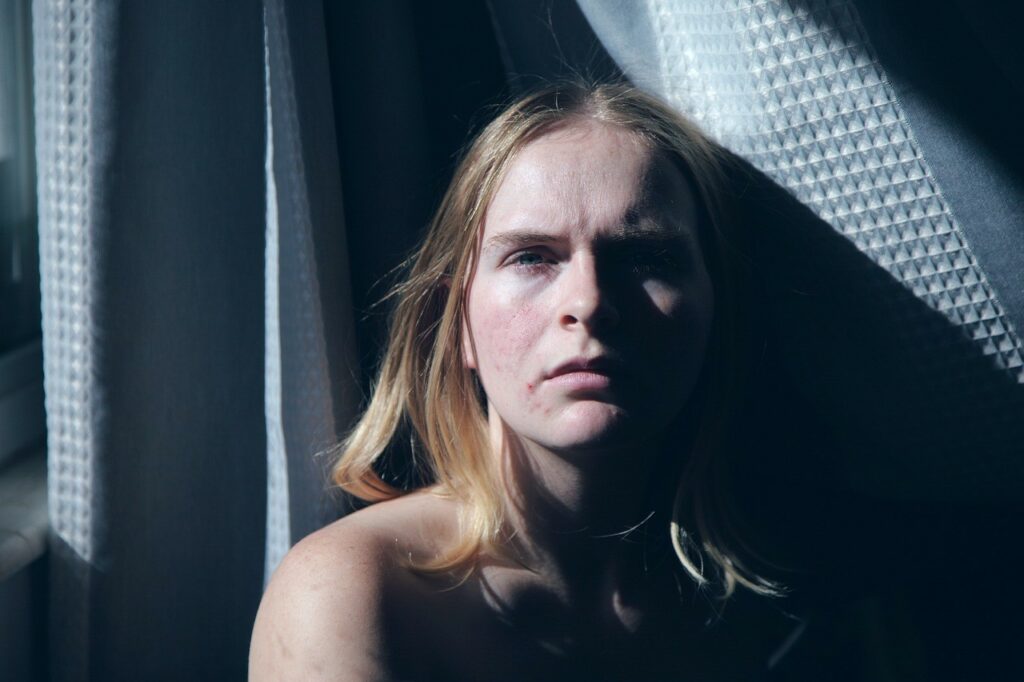Misinformation About Sun’s Effect on Acne: Sun Exposure Does Not Cure Acne

When an acne breakout hits, or someone has dealt with it for a long time, some believe that exposing the skin to the sun’s harmful rays can help. On the contrary, sun exposure without proper UV protection will do more damage than good every single time. Although sun exposure may initially appear to dry out the skin and help acne, skin becomes darker due to exposure to UV rays. Hence, the blemishes and discoloration of acne seem lighter and less noticeable. However, the sun’s rays can worsen acne and darken its appearance. The sun may cause bumps from acne to last longer, even months. Dark spots become darker, and it is known that sun exposure causes premature skin aging and increases the risk of skin cancer. There are other acne treatments that do not require causing damage.
This Is 2024, Not 1990
In the 1990s, people thought tanning beds were a safe alternative to being outside in the sun. If you ever heard someone talk about getting their “base tan,” it was believed that this was a good way to prepare your skin for the summer and protect it from sunburns. This misinformation continues today through social media influencers without the education, training, or experience in skincare giving advice. Only quality licensed dermatologists can provide an honest and accurate diagnosis, find acne treatments that will work, and get the results people seek. As much as people would like there to be blanket statements for skincare, it simply does not exist. Everyone’s skin is unique, and other environmental and lifestyle factors must be considered.
Some limited exposure to the sun with proper protection can provide minimal benefits, but the damage the sun does almost always exceeds the benefits.
Acne’s Response to the Sun
The misinformation about how the sun affects acne is that many individuals may experience immediate results that seem favorable when struggling with acne. Acne may appear less red and inflamed and even appear to be clearing up. It is essential to know that these results are both the skin’s response to skin damage. Increased sun exposure increases the likelihood of sustainable damage. So, even if initially the sun seems to be clearing up acne on the skin, decreased inflammation also increases the skin’s vulnerability to infection. Acne treatments improve the skin’s sensitivity to sunlight, which means the skin can burn and become damaged on deeper levels.
Dermatologists want people to know that the temporary benefits of the sun for acne do not outweigh the longer-term damage caused by the sun’s harmful rays. Ultimately, deeper and prolonged sun damage may require extensive treatments to reverse. Dermatologists have access to many treatment options and will help clients find affordable solutions to get their desired results.
If you are in Atlanta, Buckhead Dermatology works with patients of all skin colors to address Acne concerns. Contact their offices today for an appointment.
Continued and Prolonged Sun Exposure Greatly Increases Risk of Skin Cancer
It is known, proven, and factual that sun exposure causes damage to the skin. Skin cancer is the most common skin health issue related to the sun’s harmful rays. Skin cancer changes the DNA and leads to the development of tumors and other skin health concerns. It is a reality that 1 in 5 Americans will develop some form of skin cancer before they turn 70 years old. When you visit a quality dermatologist, they can do skin cancer screenings, which help stay ahead of signs of the condition. As with any cancer, early treatment is the best treatment.
Note: Sun Exposure is the Leading Cause of Skin Cancer!
Sun Exposure During Acne Treatment is a No-No
Unfortunately, some people choose to follow acne treatments and do not protect their skin from the sun. This is a worst-case scenario because the acne treatment does not have the opportunity to yield maximum results. After all, the sun’s dangerous rays are causing damage while the treatment is trying to do its job. Whenever a person uses a prescription acne treatment, it is critical to follow the instructions from your skin care professional and the label! Believe me, no individual “knows better” than the person who went to school for dermatology and is currently practicing this intricate profession.
Protecting Skin to Allow for Effective Acne Treatments
Everyone has heard it before, but here it is again: sunscreen must be part of a daily skincare routine. Sunscreen should go on every part of the body that will see the light during the day, and if skin is in the sun consistently, sunscreen must be reapplied for it to be effective. No lower than 30SPF should be used in today’s harsh direct sunlight. Hats, sunglasses, and lightweight clothing are all suggested by every dermatologist currently practicing. Finding refuge in the shade is also highly recommended to diminish the risk of sunburn.
Note: No More Excuses! If you do not currently have a sunscreen product for daily use, go immediately and get one. Given the number of products available for all skin types, colors, and schedules, there is no reason not to use sunscreen.
